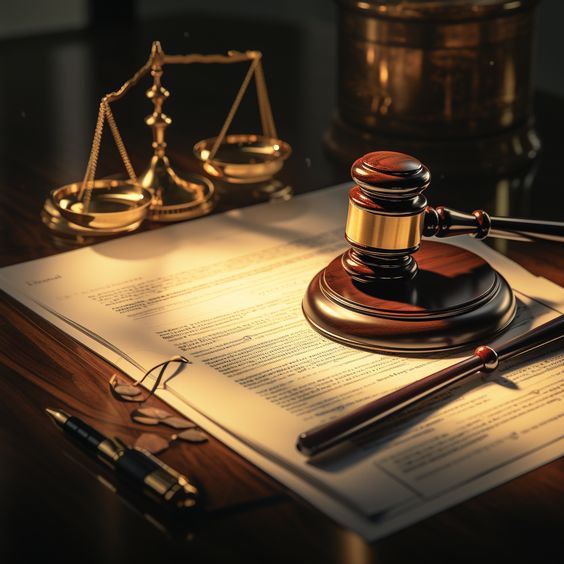J. ALBERT GAMBOA l March 21, 2024 l Manila Bulletin

The idea of requiring Filipino lawyers to undergo mandatory continuing legal education (MCLE) was first broached in the 1990s by then Associate Justice Hilario Davide Jr., who later became Chief Justice of the Philippine Supreme Court. He discussed this concept during the 1997 National Convention of the Integrated Bar of the Philippines (IBP) held in Cebu City.
But no concrete action was taken until 1999, when the IBP Board of Governors passed a resolution adopting a draft of rules for the MCLE and submitted it to the Supreme Court, which referred it to the Philippine Judicial Academy (PHILJA) for further study. PHILJA’s recommendations were adopted by the Supreme Court en banc on August 22, 2000 as Bar Matter No. 850 along with its implementing regulations that required lawyers to keep abreast with the law and jurisprudence throughout their career while maintaining the ethics of the legal profession.
Since then, it has been administered by the five-member MCLE Governing Body also known as the MCLE Committee composed of a retired Supreme Court Justice as Chair and four members nominated by the IBP, the PHILJA, a Supreme Court-designated law center, and the associations of law schools and/or law professors. Of proven probity and integrity, these committee members serve for a term of three years.
Under Bar Matter No. 50’s implementing regulations, all IBP members (except retired or non-practicing lawyers and incumbent top government officials) must complete at least 36 credit hours of MCLE every three years during the designated compliance period, the first of which was from April 15, 2001 until April 14, 2004. Currently, the MCLE is already on its eighth compliance period beginning April 15, 2022 up to April 14, 2025.
Non-exempt members of the IBP must complete the required minimum of 36 hours equivalent to 36 credit units on the following subjects: legal ethics, trial and pre-trial skills, alternative dispute resolution, updates on substantive and procedural laws, legal writing and oral advocacy, international law and international conventions, and other subjects that may be prescribed by the MCLE Committee.
Any non-exempt lawyer who fails to comply with the MCLE requirements shall be listed as a delinquent member of the IBP after the compliance period has expired. The consequence of non-compliance by a delinquent member is not being allowed to practice law in the country until such time as an adequate proof of compliance is submitted to the IBP’s Commission on Bar Discipline, the fact-finding arm of the MCLE Committee.
Based on the Supreme Court’s records, there are 14 accredited providers of MCLE courses in the Philippines at present. Among the pioneers is the Asian Center for Legal Excellence Inc. (ACLEx), which started as a stand-alone provider in 2009 and subsequently established a consortium with Centro Escolar University’s School of Law and Jurisprudence in 2015.
Headed by Atty. Hilario Paredes, the Ortigas Center-based firm is one of the five accredited providers that offers asynchronous or video on-demand MCLE classes online, which have been allowed by the Supreme Court since 2020 due to the COVID-19 lockdowns. To date, it has conducted 69 lecture series with over 5,600 on-site attendees aside from more than 1,300 online participants in its video on-demand courses.
Recently, ACLEx conducted its first post-pandemic face-to-face MCLE lecture series at Aruga by Rockwell in Makati City. Topics of discussion included business and finance subjects such as recent jurisprudence in commercial law, financial regulations in response to market shocks, updates on the anti-money laundering act, introduction to government procurement, and the law on credit and secure transactions.
ACLEx plans to hold seven more face-to-face MCLE seminars this year, and at least six more in 2025. Its upcoming 70th lecture series will be on April 18, 19, 25, and 26 at the One Shangri-La Place in Mandaluyong City. However, Atty. Paredes assured the legal community that ACLEx will still continue to offer online MCLE lectures through curated videos that enable lawyers worldwide to stay updated with Philippine legal developments wherever they may be at their own pace and convenience.
Since the world is always changing and the professions such as law, medicine, and accountancy are constantly evolving, society in general stands to gain numerous benefits from the practice of continuing education – including self-improvement and being up-to-date in one’s sphere of influence. All these become possible with a lifelong attitude of learning and continuous investment in education.
==========
*** J. Albert Gamboa is a Life Member of the Financial Executives Institute of the Philippines (FINEX) and Vice-Chair of the FINEX Ethics Committee. The opinion expressed herein does not necessarily reflect the views of these institutions and the Manila Bulletin. #FinexPhils www.finex.org.ph Photo from Pinterest.

